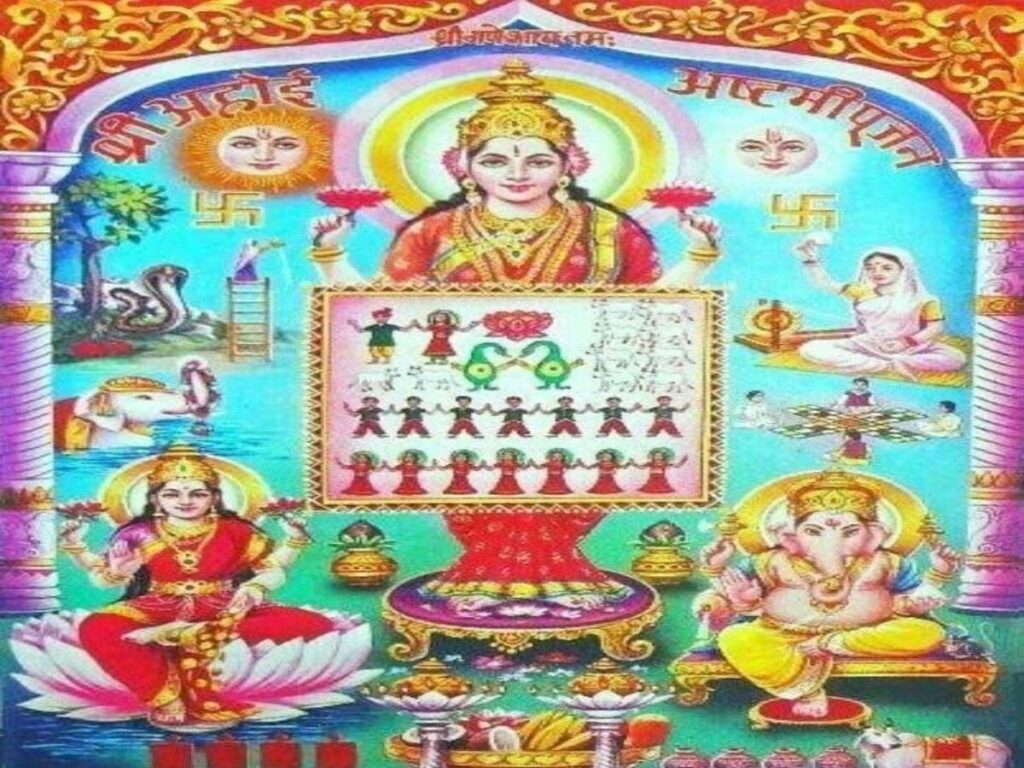Ahoi Astami, celebrated in 2024, is a significant festival dedicated to the worship of Ahoi Mata, a revered deity in Hindu culture. This festival is observed primarily by mothers and women for the well-being and prosperity of their children. It holds great importance as it signifies the bond between a mother and her child, and the rituals performed during this time are believed to bring blessings for a fruitful and harmonious life.
Significance of Ahoi Astami
Ahoi Astami falls on the eighth day of the dark fortnight in the month of Kartik. The rituals performed on this day are characterized by their deep-rooted significance, reflecting the cultural richness of India. The festival serves as a reminder of the need for maternal love, prayers for children’s health, and the observance of traditional values.
Rituals and Offerings
The celebration of Ahoi Astami involves specific rituals and offerings that mothers must observe to ensure their children’s welfare. Below are the essential items required for the puja:
| Item | Description |
|---|---|
| Ahoi Mata’s Idol or Picture | The central focus of the puja, representing the deity. |
| Chalk or Soil | Used to make a drawing of a cow and calf which signifies prosperity. |
| Fruits and Sweets | Common offerings to please the deity and seek blessings. |
| Puja Thali | A decorative plate to hold the offerings, including diyas and incense sticks. |
| Red Cloth | Used for draping the idol and as a mark of respect and devotion. |
| Water | Essential for cleansing and as an offering to Ahoi Mata. |
Celebration Practices
The celebration involves various practices that enhance the spiritual experience:
- Fasting: Many women observe a fast on this day, abstaining from food until the puja is completed.
- Prayer and Chanting: Devotees chant specific mantras and prayers dedicated to Ahoi Mata, seeking her blessings for their children’s health and happiness.
- Family Gatherings: The festival encourages family bonding as relatives come together to participate in the puja and share meals afterward.
Conclusion
Ahoi Astami is more than just a day of worship; it symbolizes the deep maternal bond and the collective hope for children’s wellbeing. By observing the rituals and making the necessary offerings, devotees express their devotion and commitment to their family’s prosperity. As we approach Ahoi Astami 2024, let us embrace this significant occasion with reverence and celebrate the values it encompasses.
